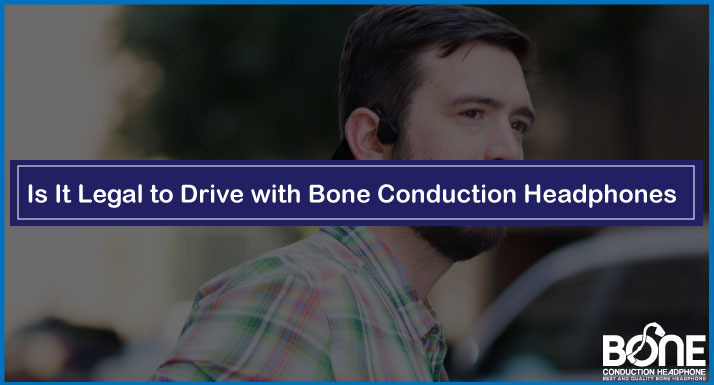Bone-conduction headphones have emerged as a popular audio choice. These headphones don’t plug your ears instead seat on the cheekbones, which is ideal for users who want to be well aware of their surroundings while enjoying their favorite tunes.
However, when it comes to driving, concerns regarding safety and legalities arise. This article will discuss the legality of driving with bone-conduction headphones, exploring the regulations associated with their use in various states of the USA.
What’s the wait, Let’s begin!
Is It Legal to Drive with Bone-Conduction Headphones
The legality of driving with bone-conduction headphones varies. In some places, using any type of headphones while driving may be prohibited, including bone-conduction ones. It is crucial to consult local traffic laws and regulations to determine the specific guidelines in your state.
Do Bone Conduction Headphones Work with Earplugs
Apart from hearing more bassy sounds, Bone conduction Headphones work fine with earplugs, or you could probably hear better sound while plugging your ears and blocking the external environmental sounds.
Do Bone Conduction Headphones Protect Hearing
Bone-conduction headphones do not provide direct protection for hearing. While they transmit sound through bone vibrations, they still deliver audio to the inner ear. Using it for extended periods and at high volumes can damage hearing in the long run.
Is It Legal to Drive with Headphones In Utah
It is legal to use a headset while driving in Utah. However, it is strongly advised for drivers to pull over or exit the road to use their phones. Texting and driving are always considered illegal in Utah, prioritizing safety on the streets.
Is It Legal to Drive with Headphones In Michigan
Yes, it’s legal to use headphones or earbuds while driving in Michigan state as there are no prohibiting laws for this act and considered safe.
Is It Legal to Drive with Headphones In California
In California, it is against the law for drivers and bicyclists to wear anything that covers both ears while operating their vehicles including headphones, earphones, or earplugs.
Is It Legal to Drive with Headphones In Colorado
The laws in Colorado don’t allow drivers to use headphones that cover both ears while allowing those headsets or helmet built-in devices to cover only a single ear leaving the other ear free.
Is It Legal to Drive with Headphones In Arizona
Arizona does not currently have any laws that specifically prohibit individuals from wearing headphones or earbuds while driving motorcycles, cars, or any other type of vehicle.
Conclusion
While bone-conduction headphones provide the benefit of situational awareness, it’s essential to consider the legality of using headphones while driving in specific jurisdictions. Additionally, users must exercise caution to prevent potential hearing loss by using the headphones responsibly and being mindful of volume levels and duration of use.
FAQs
Can you use AfterShokz while driving?
AfterShokz headphones, which do not block the ears, are potentially safe for use while driving as they allow for maintaining situational awareness of surrounding sounds.
Can you go deaf with bone-conduction headphones?
Yes, they can cause hearing loss if used improperly on loud volumes and for extended periods of time. Despite the mechanism of transmitting sound through bone vibration, sound waves still reach the brain through the inner ear causing damage to it.

